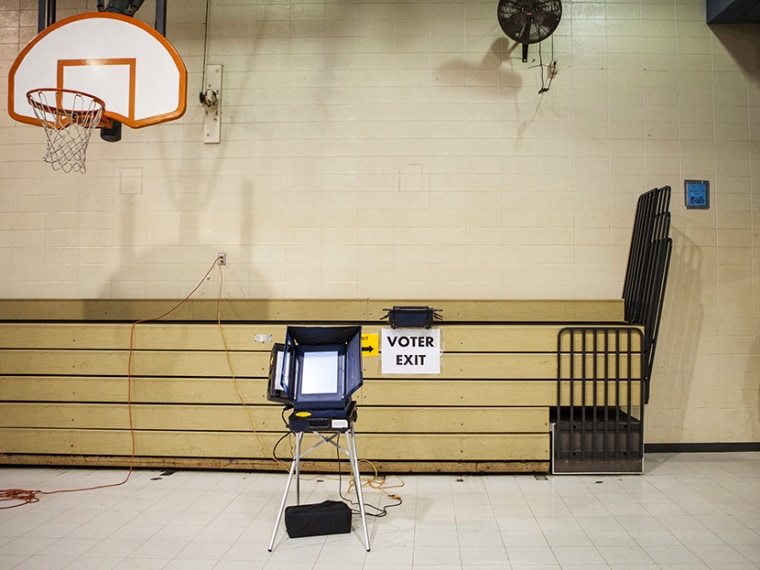A federal court in April ruled against Wisconsin's voter-ID law, concluding that the restriction violated the Voting Rights Act's ban on racial discrimination. Last month, however, a three-judge panel on the 7th Circuit Court of Appeals -- featuring three Republican-appointed jurists --
lifted the lower court's injunction, creating some election chaos in the Badger State.
Yesterday, as Zach Roth
reported, the same 7th Circuit panel finished the job, ruling on the merits.
The 23-page ruling, written by Judge Frank Easterbrook, finds that the law is constitutional and does not violate the Voting Rights Act's (VRA) ban on racial discrimination. The opinion is striking for its blithe tone in upholding a law that could disenfranchise many thousands. One prominent election law scholar called it "horrendous." [...] The law has likely disenfranchised voters already. When the appeals panel abruptly put the law into effect last month after it had been blocked for over two years, hundreds of people had already returned absentee ballots without ID, since the ID requirement wasn't in effect at the time they voted.
Elections-law expert Rick Hasen was clearly
disgusted: "Judge Easterbrook picks out the evidence from the record he likes, and dismisses the evidence he does not like.... The opinion is also full of things that make my blood boil."
The Wisconsin Supreme Court has also already approved the voting restrictions, concluding that "voter fraud" is a legitimate "concern." The ruling specifically pointed to a Republican voter in Milwaukee accused of 13 counts of voter fraud --
none of which, ironically, would have been prevented by a voter-ID law.
Voting-rights advocates still hope that the U.S. Supreme Court will intervene before thousands of Wisconsin voters are disenfranchised for no reason, but few consider it likely.
The consequences of this may very well swing the elections in the Wisconsin GOP's favor next month -- which is very likely why voting access was curtailed in the first place.
Claire Groden
reported on just how many voters are at risk.
In April, when District court judge Lynn Adelman issued an injunction against the law, he estimated that 300,000 registered voters across the state lack the IDs they need to vote. The judge arrived at that estimate by comparing the testimony of two witnesses, a statistical marketing consultant, Leland Beatty, and a professor at the University of Georgia, M.V. Hood III. Beatty and Hood both crunched through the DMV records with registered voter files to determine how many registered voters in the state lack either a driver's license or state ID card, the two most common forms of identification. Using different methodologies, the two men produced different estimates. Hood said between 4.9 percent (167,351) and 10.9 percent (368,824) of registered voters lacked ID, while Beatty estimated 9.4 percent (317,735). Even Hood's low-end estimate of 167,351 disenfranchised voters is enough voters to swing a tight election. Walker won in 2010 by only 124,638 votes. According to the Huffington Post Pollster, Walker is currently leading Burke 48.3 to 46.3.
Remember, Wisconsin Republicans approved this law to address a problem that didn't exist. It's simply a matter of candidates choosing their preferred voters, rather than voters choosing their preferred candidates.
Making matters slightly worse, the
Wisconsin State Journal recently
reported, "Three state agencies charged with implementing voter ID for the Nov. 4 election say they have no additional money set aside to help voters and state workers comply with the newly reinstated requirement."
Even by the low standards of the "war on voting," the restrictions imposed by Wisconsin Republicans are indefensible. That these GOP tactics may rig the elections in the GOP's favor is a democratic embarrassment.
